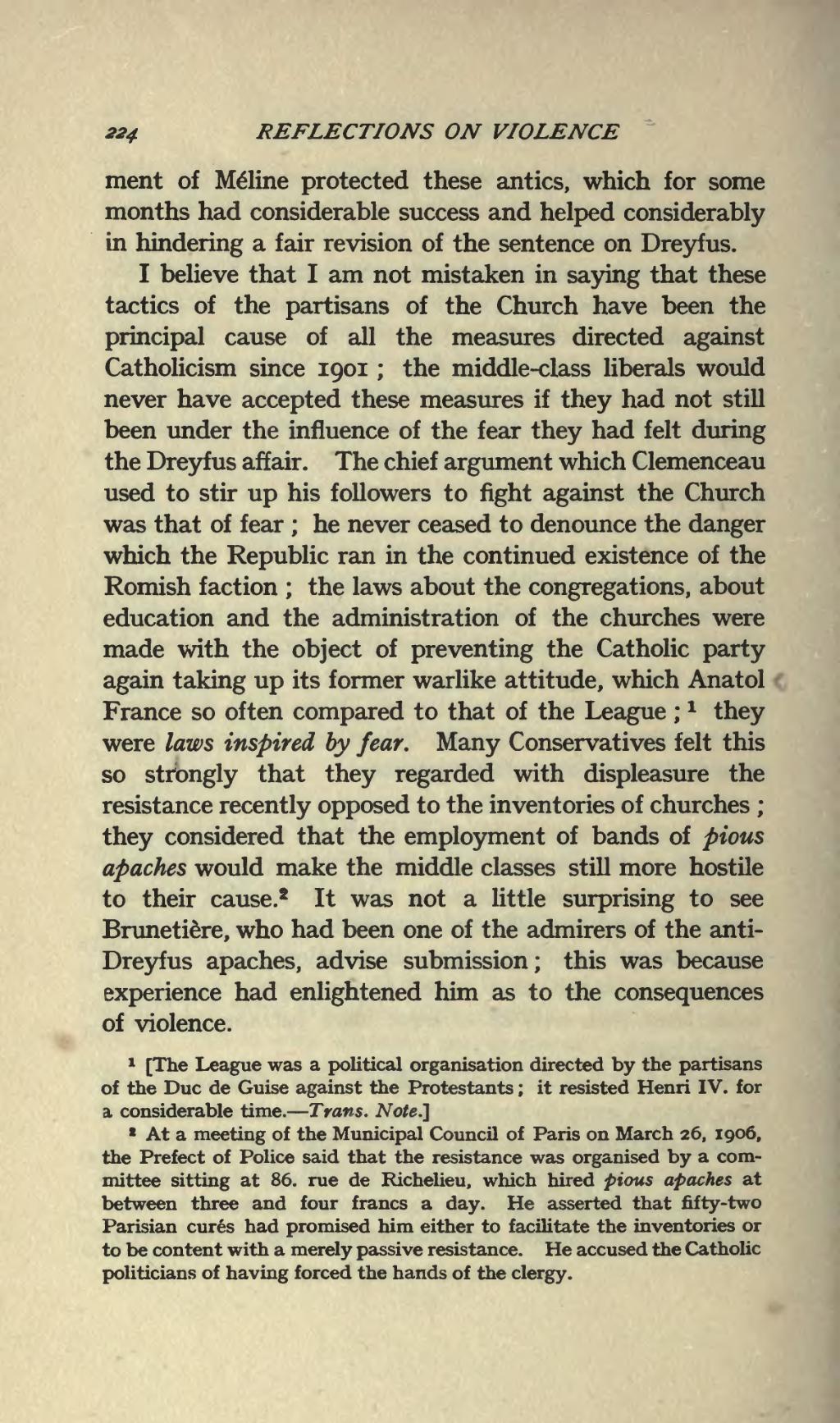ment of Méline protected these antics, which for some months had considerable success and helped considerably in hindering a fair revision of the sentence on Dreyfus.
I believe that I am not mistaken in saying that these tactics of the partisans of the Church have been the principal cause of all the measures directed against Catholicism since 1901; the middle-class liberals would never have accepted these measures if they had not still been under the influence of the fear they had felt during the Dreyfus affair. The chief argument which Clemenceau used to stir up his followers to fight against the Church was that of fear; he never ceased to denounce the danger which the Republic ran in the continued existence of the Romish faction; the laws about the congregations, about education and the administration of the churches were made with the object of preventing the Catholic party again taking up its former warlike attitude, which Anatol France so often compared to that of the League;[1] they were laws inspired by fear. Many Conservatives felt this so strongly that they regarded with displeasure the resistance recently opposed to the inventories of churches; they considered that the employment of bands of pious apaches would make the middle classes still more hostile to their cause.[2] It was not a little surprising to see Brunetière, who had been one of the admirers of the anti-Dreyfus apaches, advise submission; this was because experience had enlightened him as to the consequences of violence.
- ↑ [The League was a political organisation directed by the partisans of the Due de Guise against the Protestants; it resisted Henri IV. for a considerable time.—Trans. Note.]
- ↑ At a meeting of the Municipal Council of Paris on March 26, 1906, the Prefect of Police said that the resistance was organised by a committee sitting at 86. rue de Richelieu, which hired pious apaches at between three and four francs a day. He asserted that fifty-two Parisian curés had promised him either to facilitate the inventories or to be content with a merely passive resistance. He accused the Catholic politicians of having forced the hands of the clergy.
